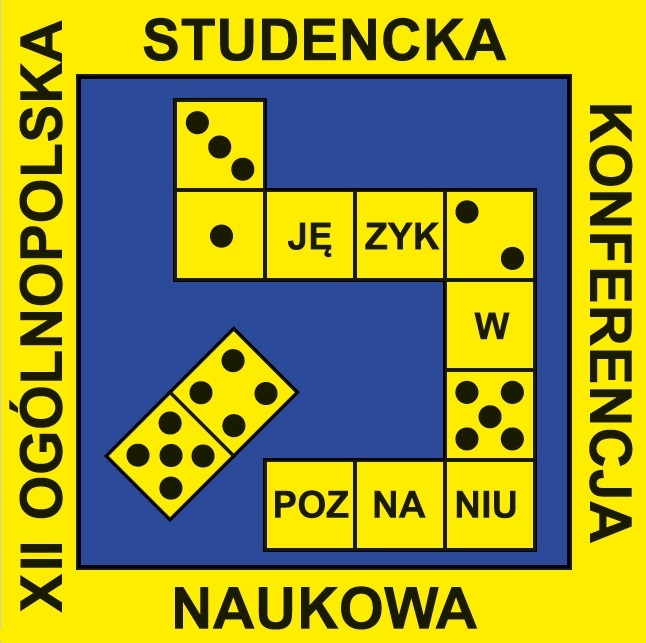XII edycja - abstrakty
Główna |
Organizacja |
Abstrakty |
Program |
Ankieta |

Prezentujemy listę referentów oraz tytułów wystąpień wraz ze streszczeniami. Zapraszamy do lektury!
Przypominamy, że język, w którym podany jest tytuł, jest równoznaczny z językiem całego wystąpienia.
Pod każdym streszczeniem widoczny jest skrócony program (aktualny na 19.10.2020), dzięki któremu można dowiedzieć się, jakie inne referaty będą wygłaszane podczas danej sekcji.
Judyta Mężyk (Uniwersytet Śląski w Katowicach)
Defining and classifying pragmatemes as a part of formulaic language
The term "pragmatic idiom" (routine formula, formulaic expression or, as often referred to in this presentation, pragmateme), according to Blanco (2013), means a phrase (or, more rarely, a single lexeme) the meaning of which is limited by a communicational situation in which it is used. Chlebda (1993) uses a simpler definition saying that a pragmateme (or a phraseme, as he calls it) is a fixed (and often the only) way of linguistic expression in a particular context while Fléchon, Frassi and Polguère (2012) distinguish two types of pragmatemes: the one of broad definition and the one of narrow definition. In the visible plurality of definitions of the said units, the researchers even ask in the title of their paper whether "pragmatemes have the charm of being indefinable"1.
The presentation discusses the topic of pragmatemes. First, it is presented how the notion of pragmatemes is called and defined by various researchers, especially by French, Polish and English linguists. Then, a few classifications of these units are introduced. Finally, the role of pragmatemes as a part of the broader spectrum of formulaic language is discussed.
1 Original title: "Les pragmatèmes ont-ils un charme indéfinissable ?", translation to English provided by the author of the presentation.
Gdzie i kiedy:
| W tym samym czasie ... sekcja 1 | sekcja 2 moderacja: Anna Skałba |
| 10:00-10:20 | Judyta Mężyk (Uniwersytet Śląski w Katowicach) - Defining and classifying pragmatemes as a part of formulaic language |
| 10:20-10:40 | Weronika Gębicka (Uniwersytet im. Adama Mickiewicza w Poznaniu) - Tahitian, French Tahitian, and French as Language Rivals in French Polynesia |
| 10:40-11:00 | Joanna Mirek (Katolicki Uniwersytet Lubelski) - Decision-making process of trainee interpreters: a pilot project |
| 11:00-11:20 | dyskusja |